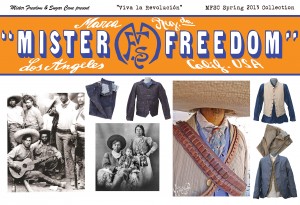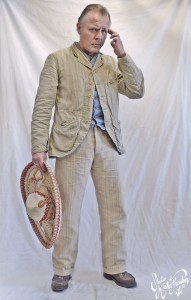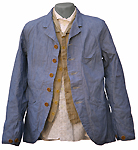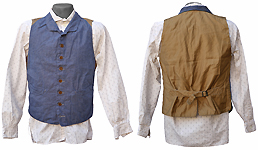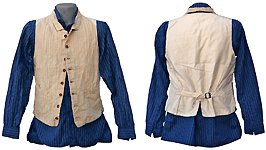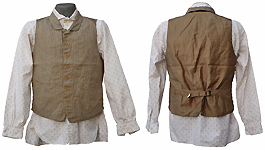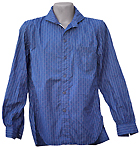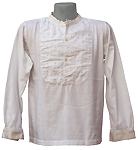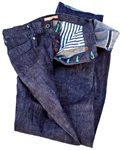“VIVA La REVOLUCIÓN” Collection
Mister Freedom® x Sugar Cane MFSC Spring 2013
As one might have suspected from the title of our latest Mister Freedom® x Sugar Cane collection, our new venture will be taking us ‘South of the Border’, on the set of the “Mexican Revolution”, commonly referring to the brutal civil war that took place in Mexico, starting in 1910 and ‘settling’ around 1920.
I quickly realized I knew very little of it, save for a few cliches of its iconic leaders (Villa, Zapata…), some songs (La Cucaracha with its puzzling lyrics) and silhouettes (large sombreros, serapes and loaded bandoleers) mostly borrowed from Sergio Leone’s flicks… But learning that at the turn of the 19th century about 1000 men owned most of Mexico, the majority of them foreigners, leaving some 97% of the population wondering why, was a promising scenario for a fascinating slice of History.
Like with any major social uprising, the Mexican Revolution was a very complex succession of events. They led to an 80 year old foreigner-friendly Dictator Porfirio Díaz being thrown, Democrat Francisco Madero elected, then assassinated… Ensued somewhat of a Comandantes musical chair drill for power… and social and constitutional changes that continued beyond that decade to shape modern Mexico.
Alliances, treason, bravura, determination, politics & religion, sacrifices & intrigues blended in a confusing saga that has many historian disagree on what really happened, and how. Scholars even disagree on the total human cost, quoting the blood bath toll at 1 million, all the way to 3.5 million, according to their interpretation of the events.
Due to deeply rooted foreign investments in Mexico and International involvement in land ownership and politics, these ‘South of the Border’ events unfolded under the watchful eyes of the World leaders. International Media, along with Foreign Secret Services were on it like lead paint. This would be one of the most documented modern revolution. Commissioned photographers, writers, journalists, motion picture crews, foreign advisors and undercover agents were dispatched… The US-Mexican Border was a media circus, and the rest of Mexico was in no less of a confusing mess.
Here are some random parts of the ‘magic formula’ that contributed to what went on, some one hundred years ago:
– Germany, who had been courting Mexico for years, patrolled the coast with Imperial Navy ships, gathering intel on how prepared the US would be in the event of a European conflict. (In 1914, witnessing that American sailors had to dye their white summer uniforms with coffee grounds for camouflage was a hint that the US needed more time.)
– Anxious US diplomats thrived to play the right cards, and feared betting on the wrong horse.
– Counterfeiters generated practice targets for the Federales firing squads.
– Foreign mercenary troops from ‘neutral’ Countries were clearly spotted on battle fields.
– William R. Hearst unleashed his powers to dismiss the legitimacy of the Revolution in public opinion.
– General Francisco Villa starred in a silent movie filmed on location by an American bullet-dodging filming crew (sadly the movie “The Life of General Villa” never hit the screen, as most reels got ruined during transport back to Hollywood, supposedly.) If you get a chance, watch Gregorio Rocha’s “Lost Reels”, I missed that one…
For a captivating snapshot of early events, war correspondence like you were there, read John Reed “Insurgent Mexico” (1914), a fearless unarmed 26 year old American left-wing journalist who joined the ranks of the Cucarachas (as were nicknamed the troops on foot of the División del Norte, who needed funny cigarettes to keep trekking.) He survived to tell, just to die a few years later while documenting the Russian Revolution.
This season, we have drawn inspiration from period photography (the works of Gustavo Casasola, Robert Runyon…), from the silver screen’s vision of the Revolución… and, to be fair, from whatever is going on inside our little cabezas:
– A smiling galloping Maderista, wearing a three piece suit on donkey back (General Emiliano Zapata was himself quite the dresser, never to be seen in traditional calzón, but instead often decked out in fancy Charro suits.)
– A weary Obregonista revolucionary, in ragged tropical uniform (shod with a field boot on the left, and a huarache sandal on the right.)
– Hacienda peons and villagers, clad in maguey fibers crude calzónes, outfits of manta (white calico cotton cloth) and chizo (homespun).
– Sun faded serape wrapped fearless chinacos descendants (expert horsemen not belonging to the Mexican upper-class.)
– Train rooftops overcrowded with tired troops and the devoted Las Adelitas (fierce women who followed a fighting husband, supplying him with tortillas and comfort, and one less reason to go missing.)
– Railroad crew operating Engine No. 135, General Villa’s famous caboose, his main headquarter during the campaigns of the División del Norte.
– Zapatistas, Soldaderas, Rurales, Federales, Yaqui Indians, soldiers of fortune, Texas Rangers, Anarchists rallying the “Land and Liberty” battle cry…
These scenes and characters from the Mexican Revolution display such an eclectic mix of styles that there was plenty to get inspired by.
But, as you are wondering where we are going with this, enough with the heavy stuff. Those interested will look into it from the wealth of information available.
Andale.
So. To ease into this season, we have imagined some characters from our previous “Men of the Frontier” collections (Spring and Fall 2012) getting involved in the Revolución. Many thrill seekers did at the time, seizing opportunities ranging from wanting to fight oppression… to making a peso. Some were known as members of the ‘Gringo Rag-tag Battalion‘… But i’m drifting again.
Spring 2013 is not about Mariachi outfits or Cinco de Mayo costumes, but rather mixes early European tailoring influences (as worn by the Hacendados, the landed barons), with Old West-meets-Bandidos-meets-Charreria silhouettes. With a grain of salt, and à la Mister Freedom® salsa picante, but of course.
Tropical hemp-cotton textiles, fancy poplin shirting, “Baja” indigo blue woven yarns, natural earth tone slubby fabrics, pin stripes, sugar cane fibers selvedge denim… are some of the original fabrics we chose and developed for this concept. The look book for Spring 2013 can be viewed here.
Here is what our characters will be carrying in their suitcase or saddle bags this season:
* The HACENDADO Sack Coat, Waistcoat and Trousers, in three original fabrics: ‘Baja Denim’, ‘Homespun’ and ‘Stripe’. (To match or not to match, that is the question.)
* The RANCHERO Shirt, in indigo calico printed poplin and dobby stripe jacquard poplin.
* The CHARRO Bib, indigo dyed and white cotton knit, with fancy bibs.
* The LOCO Jacket and VAQUERO Jeans, in indigo selvedge left hand twill denim, woven from cotton and recycled sugar cane fibers.
Señoras and Caballeros, thank you for reading.
El Jefe,
Cristóbal Loiron
![]()
Please email sales@misterfreedom.com or call the store at 323-653-2014 for inquiries. We ship international.
